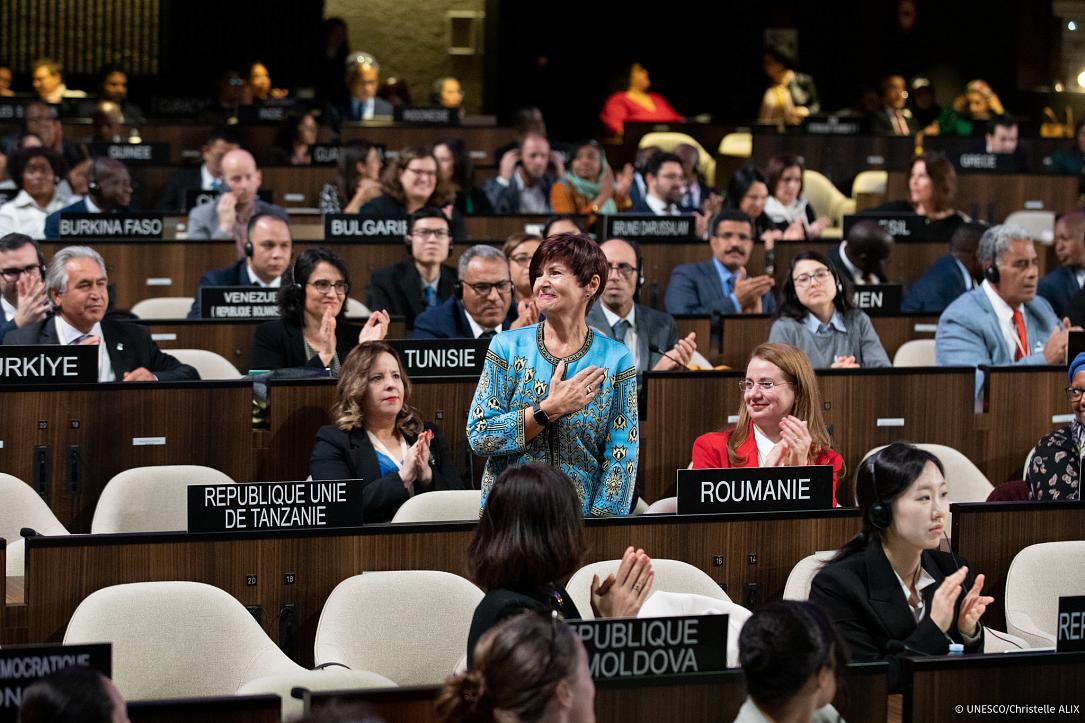Romanian ambassador elected to presidency of UNESCO general conference



Romania’s permanent delegate to UNESCO, ambassador Simona Miculescu, has been elected to the presidency of the 42nd session of the General Conference of UNESCO. It is the first time that Romania chairs a governing body of UNESCO in its 67 years of membership.
The opening of the 42nd session of the General Conference of the United Nations Educational, Scientific, and Cultural Organization (UNESCO), which took place on Tuesday, November 7, in Paris, marked the beginning of Romania occupying the presidency of this edition of the Conference through the permanent delegate of the Romanian state to UNESCO.
Romania will hold the position of president of the General Conference for two years, until the election of the next session's president in 2025.
"I come before you with a vision. A vision for action. An urge to uphold the foundation of the UNESCO Constitution, which states that if peace is not to fail, it must be founded on the intellectual and moral solidarity of humanity. Let us transcend borders. Let us defy divisions. We stand on the brink of profound transformations. The responsibility is upon each and every one of us, both member states and the Secretariat, to guide them in the best direction," ambassador Miculescu stated.
Two exceptional concerts, "Romanian Jazz Rhythms at UNESCO" and "Romanian Jazz Rhythms in Paris," performed by Nadia Trohin (vocals), Mircea Tiberian (piano), Sorina Rotaru (vocals), Cătălin Răducanu (piano), and Oleg Lascu (double bass), were scheduled in Paris on November 7 at the UNESCO Grand Hall and on November 8 at the Béhague Palace to commemorate this event.
The General Conference is the highest governing body of UNESCO and convenes every two years, according to the Ministry of Foreign Affairs.
The 42nd session of the UNESCO General Conference will take place from November 7 to November 22. During the discussions, the Romanian delegation will present the country's national priorities in the fields of cultural, educational, and scientific research policies, in line with UNESCO's objectives and strategies, as well as Romania's commitment to multilateralism and the values of the United Nations.
Created in 1945, UNESCO reunited 194 member states and has as its mission to contribute to peace and security by promoting international cooperation in education, sciences, culture, communication, and information. It promotes knowledge sharing and the free flow of ideas to accelerate mutual understanding and a more perfect knowledge of each other's lives.
(Photo source: press release)